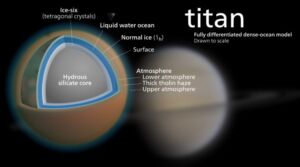
Reality, that mystifying concept enveloping our lives, molding our perceptions, and incessantly challenging our comprehension. It has long intrigued the minds of philosophers, scientists, and thinkers through the ages. In this article, we embark on a journey to unveil the intricate layers of reality, delving into its myriad dimensions, and shedding light on the profound questions it presents. Join us as we plunge into the depths of existence and offer insights to broaden your grasp of reality.
Comprehending the Essence of Reality
Defining Reality
Before we dive into the intricacies, let’s commence with a fundamental definition. Reality can be described as the state of existence, unaffected by our thoughts or emotions regarding it. It constitutes the objective, unchanging world that exists beyond our subjective perceptions.
Perception vs. Reality

One of the most intriguing facets of reality is the interplay between perception and the true nature of things. Our perception often molds our reality, yet it can also deceive us. Consider the classic example of a desert mirage. From afar, it resembles a glistening oasis, but upon approach, it dissolves into a mere optical illusion. This underscores the chasm between our perceptions and the objective truth.
Exploring the Multifaceted Realms of Reality
Physical Reality
The physical realm of reality encompasses the tangible universe—the galaxies, planets, stars, and all matter. It’s the domain scrutinized by physicists, astronomers, and chemists. Governed by natural laws and principles, this aspect of reality is both predictable and quantifiable.
Quantum Reality
Venturing into the subatomic domain, we encounter the enigmatic and mind-boggling realm of quantum mechanics. Quantum reality challenges our intuitions and conventional understanding. Particles can exist in multiple states simultaneously, and the act of observation itself influences outcomes, giving rise to the famous Schrödinger’s cat paradox. Quantum reality remains a subject of active research and debate.
Perceptual Reality
Perceptual reality is the world as we perceive it through our senses—everything we see, hear, touch, taste, and smell. However, our senses are fallible and susceptible to deception. Optical illusions, hallucinations, and sensory limitations serve as reminders that our perceptual reality can deviate from the objective truth.
Cognitive Reality
Cognitive reality encompasses the mental constructs, beliefs, and concepts that mold our perception of the world. It encompasses our thoughts, emotions, memories, and the influences of culture. This dimension of reality is highly subjective and varies from person to person, forming the crucible of our individual realities.
The Nature of Reality: Philosophical Perspectives
Realism
Realism, a philosophical standpoint, asserts the existence of an objective reality independent of human perception. It posits that reality exists, irrespective of our awareness of it. This perspective closely aligns with scientific inquiry, as science seeks to unearth the underlying truths of the physical world.
Idealism
In stark contrast to realism, idealism posits that reality is fundamentally mental or spiritual. It suggests that the external world is a product of our minds or consciousness. Philosophers like George Berkeley argued that to exist is to be perceived, challenging the notion of an autonomous, external reality.
Constructivism
Constructivism strikes a balance, proposing that reality is shaped through our interactions with the world. It acknowledges the role of perception and cognition in shaping our reality. This perspective is particularly pertinent in understanding how our beliefs and cultural contexts mold our perception of reality.
The Quest for Ultimate Reality
Unified Field Theory
In the realm of theoretical physics, scientists seek a unified field theory that could elucidate all fundamental forces and particles within a single, coherent framework. Such a theory would furnish a comprehensive understanding of the underlying structure of reality, spanning from subatomic particles to the vast expanse of the cosmos.
Consciousness and Reality
The relationship between consciousness and reality represents another captivating avenue of exploration. Some theories posit that consciousness transcends mere brain activity, constituting a fundamental facet of the universe. This raises the intriguing prospect that consciousness may play a pivotal role in shaping reality itself.
The Role of Perception in Shaping Reality
Confirmation Bias
Confirmation bias is a cognitive phenomenon wherein individuals tend to seek information that reinforces their existing beliefs while disregarding contradictory evidence. This bias can significantly color our perception of reality, distorting our worldview.
Cultural Influences
Our cultural upbringing exerts a profound influence on our perception of reality. Diverse cultures may interpret identical events or phenomena in markedly distinct ways. This cultural relativism underscores the subjectivity inherent in our realities.
Challenges to Objective Reality
Simulated Reality
The concept of a simulated reality postulates that our entire existence could be a computer-generated simulation crafted by advanced entities or future civilizations. This notion, popularized by philosopher Nick Bostrom, prompts contemplation about the very nature of reality and the repercussions of such a simulation.
Multiverse Theory
In the domain of cosmology, the multiverse theory proposes the existence of multiple universes governed by varying physical laws and constants. If validated, this theory challenges the notion of a singular, objective reality, unveiling the possibility of an expansive, interconnected multiverse.
Practical Implications of Grasping Reality
Psychological Well-being
A deeper grasp of the interplay between perception and reality can enhance psychological well-being. Recognizing the influence of biases and cultural factors in shaping our reality enables us to approach life with greater open-mindedness and adaptability.
Scientific Advancements
In the realm of science, a profound comprehension of reality can catalyze breakthroughs in fields such as quantum physics, cosmology, and neuroscience. It can pave the path for technologies that harness the fundamental forces of the universe or provide insights into the enigma of consciousness.
In our quest to fathom reality, we have traversed its myriad dimensions, from the tangible to the cognitive, and delved into philosophical perspectives that have molded our understanding. We have scrutinized the challenges posed by perception and cultural influences, and contemplated the profound implications of simulated realities and multiverse theories.
Reality remains an endlessly captivating subject of inquiry. It beckons us to challenge our preconceptions, broaden our horizons, and embrace the mysteries that envelop us. Whether we find ourselves in a universe governed by objective laws or within the constructs of our own consciousness, the journey of exploring reality endures as an intrinsic facet of the human experience.
As we conclude our odyssey, we invite you to introspect on your own perception of reality. How does it mold your existence, your convictions, and your interaction with the world? Perhaps, amidst these reflections, you will unearth new layers of insight and a deeper appreciation for the enigmatic essence of reality. Remember, it is a voyage without a final destination, where each question begets more questions, and every revelation unveils fresh enigmas.
Hence, embrace the expedition, challenge the boundaries of your reality, and persist in your pursuit of the truths that lie beneath the surface of existence. In doing so, you not only enrich your personal understanding but also contribute to the ceaseless exploration of reality that has captivated humanity across the ages.



